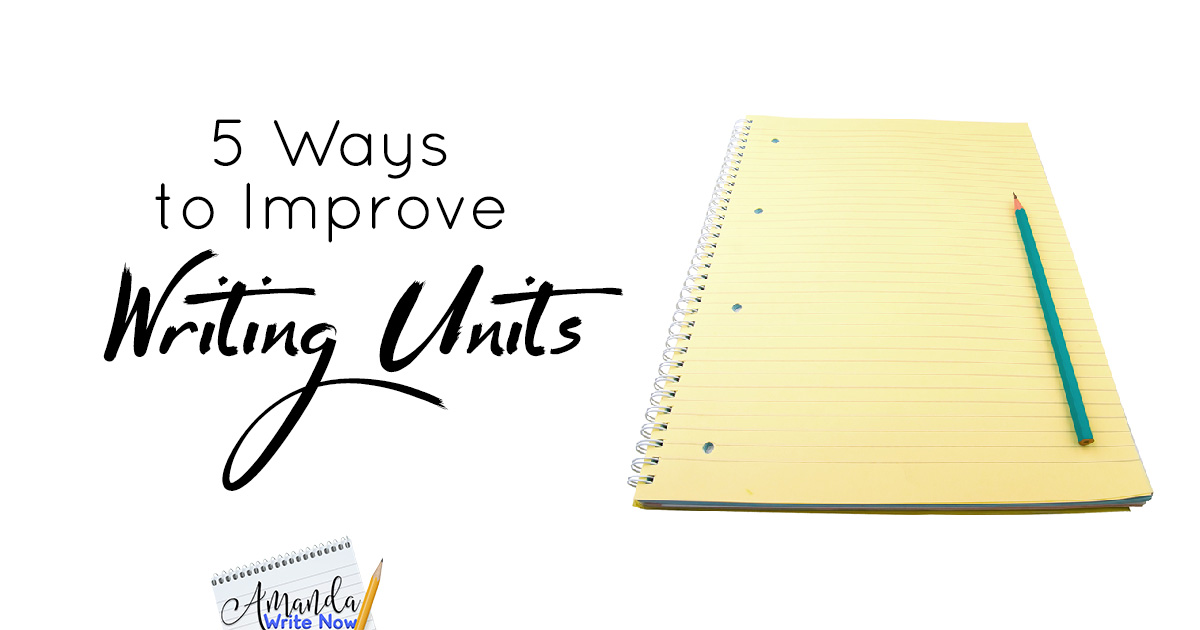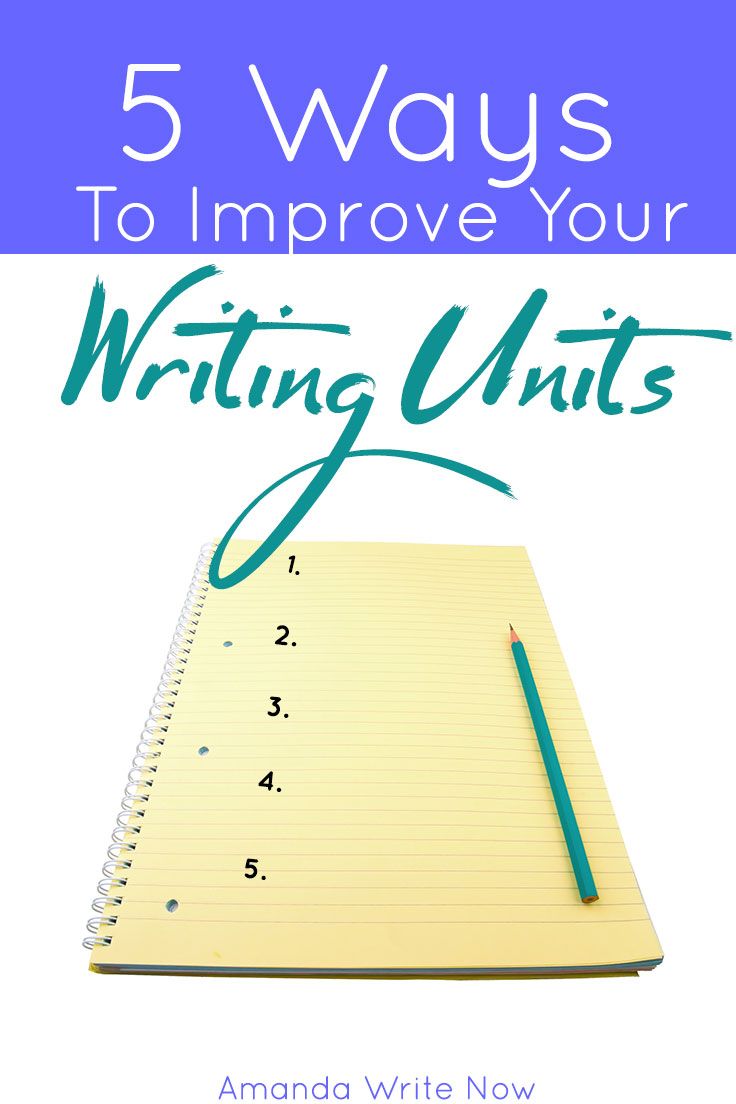
Planning a unit can be time consuming but it doesn’t have to be. Planning a unit can actually be quite simple, especially if you plan as you go, based on the needs of the students in front of you. Below you’ll find 5 tips to help you plan your next writing unit!
1. Start with a Reading Workshop Unit
It is incredibly powerful to teach a 2-3 week reading unit before a writing unit because it allows for the study of mentor texts. Students need to read the genre they are writing in. Therefore, I encourage you to ditch the whole class novel read alouds and instead use short stories, articles or picture books for your reading units. The rest of reading workshop should be spent allowing students time to read their own self-selected books. Why? Because students who read a lot are better writers. In my opinion, the ultimate goal of a reading teacher is to support resistant readers in finding books they will enjoy and support avid readers in expanding their genre selection.
2. Choose Targeted Vocabulary for Both Reading & Writing Workshop Units
Students need to hear and use the same terms over and over again. Here is a possible narrative unit vocabulary list for a narrative reading and writing unit. Here is an information unit vocabulary list. If you are teaching information writing you might read lots of informational articles either online or in an information book and teach terms such as headline, caption and author’s purpose during both the reading and writing units.
If your reading unit includes teaching terms such as connections, questions and inferences they can be brought up during a writing lesson too…Connections-when writers write their goal is to connect with the reader and a readers job is to try to connect with what is being read. Questions-writers shouldn’t give too much away too soon, they need to build tension which leads to questions for the reader. Inferences-writers need to provide clues for readers by adding precise detail to important parts and readers use these clues to make inferences about the characters, setting, conflict and resolution.
3. Teach Behavior Mini Lessons During Your Writing Workshop Units
Students need structure and to know what is expected of them during writing time. Try to follow the writing workshop structure during reading too. Don’t just teach writing skills, dedicate time to behavior and expectations too. And definitely don’t make it an add on to a mini lesson! Mini lessons should be mini, ten minutes or less. This means that whatever you are teaching that day needs to be targeted, direct and succinct. For example…
“Writers today I’ll teach you about writing stamina/how to come to the meeting area/how to leave the meeting area/what to do when you think you are done/how to work with your writing partner etc.” Here are some more behavior mini lessons.
4. Spend the 1st Week of Writing Workshop Units on Generating Lots & Lots of Drafts
Don’t bog students down with worksheets, graphic organizers, checklists and especially not wordy, non-student friendly rubrics. Instead allow students to talk and write A LOT the first week of your writing unit. If you are about to start an informational writing unit, have students talk a ton about topics they are experts in and hobbies they have. Your classroom should be buzzing with students eager to talk about all they know about a particular topic. Once you’ve talked and talked and talked have students write and write and write in a writer’s notebook. Give students an exact number of pages to shoot for each day of writing. To differentiate point to a specific point on a student’s page and say, “When I come back in five minutes I want you to be here.” During this process it is incredibly important to let students in on the secret that most of this writing is not very good and that is OKAY! Most writing that is produced in the first draft is not good, but at least the writer now has a ton of content to work with! Check out this video on the topic.
5. Assess Students While They Write
Sometimes instead of conferring you can just tell students “Today I’ll be walking around observing your behavior as writers.” Carry around a clipboard with student names and make notes about stamina, independence (the ability to write without getting constant help or just sitting and thinking) and partner interaction. Inform your students that not only are you grading the actual piece they plan to publish and turn in but their behavior during writing workshop too!
If you found value in this article please feel free to share this post with your education community through Facebook, Pinterest or Twitter at the top of this post.

0 Comments